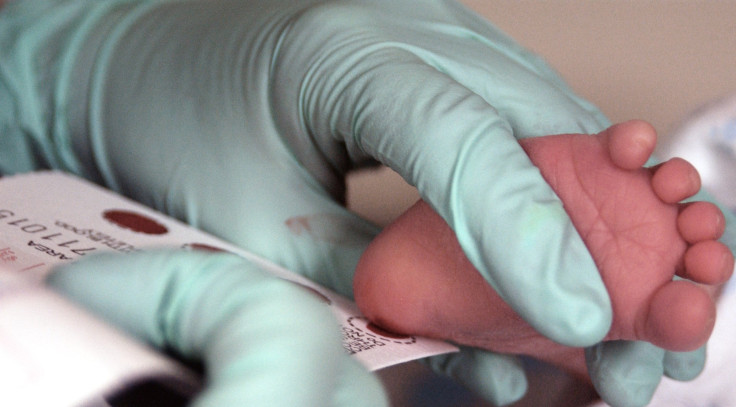Emotional Distress During Pregnancy May Increase Risk For Preterm Birth And Other Adverse Birth Outcomes

A new study published in PLOS ONE finds a negative attitude during the third trimester of pregnancy can increase risk for adverse birth outcomes.
Prior to this, studies have shown a positive predisposition or attitude, marked by higher levels of self-esteem and optimism, is associated with higher birth weight, longer gestational length or pregnancy time, and lower risk for preterm delivery. However, these studies were all conducted in "relatively small and/or selected samples and none have covered the whole pregnancy," the study authors said. So for their own research, they explored the influence maternal emotions had on birth outcomes in a large sample.
Participants were enrolled in the Prediction and Prevention of Preeclampsia (PREDO), where 3,376 women answered questionnaires to self-assess positive affect (the extent to which they experience positive moods), depressive symptoms, and anxiety several times throughout their pregnancy. Study authors also analyzed data on birth outcomes from the National Birth Register and from participating women’s medical records.
The authors found "statistically significant, but clinically negligible" associations between maternal emotions during the third trimester and gestational length, but no significant associations with birth weight. The study authors emphasized prenatal emotions affected gestation by an "extremely modest amount,” amounting to 12 hours' shorter or longer gestation for each standard change in prenatal emotions.
The study was also unable to rule out that the findings reflect "reverse causality" — the idea that negative prenatal emotions come about in response to preterm birth risk. There was also no look into whether mothers’ psychosocial support for depression and anxiety was lacking.
"While this subject has raised intense research interest in recent years, our findings indicate that the effects of prenatal emotions on birth characteristics are very small," the study authors said. "The clinical relevance may be in the message that prenatal negative emotions, including symptoms of depression and anxiety, may not play such a large role for pregnancy outcome per se. Of course, this has to be verified in further studies with as intensive measurements of prenatal emotions."
There is more solid research, however, that warns mothers against prenatal stress. Several studies show prenatal maternal stress is associated with negative consequences in fetal and infant development, according to McGill University. And a study published in Clinical Obstetrics and Gynecology suggests "pregnant women’s psychological health may have consequences for fetal neurobehavioral development, and consequently, child outcomes."
In any case, this suggests researchers should focus more on the effects of mental health during pregnancy.
Source: Pesonen AK et al. Maternal Prenatal Positive Affect, Depressive and Anxiety Symptoms and Birth Outcomes: The PREDO Study. PLOS ONE. 2016.
Published by Medicaldaily.com



























